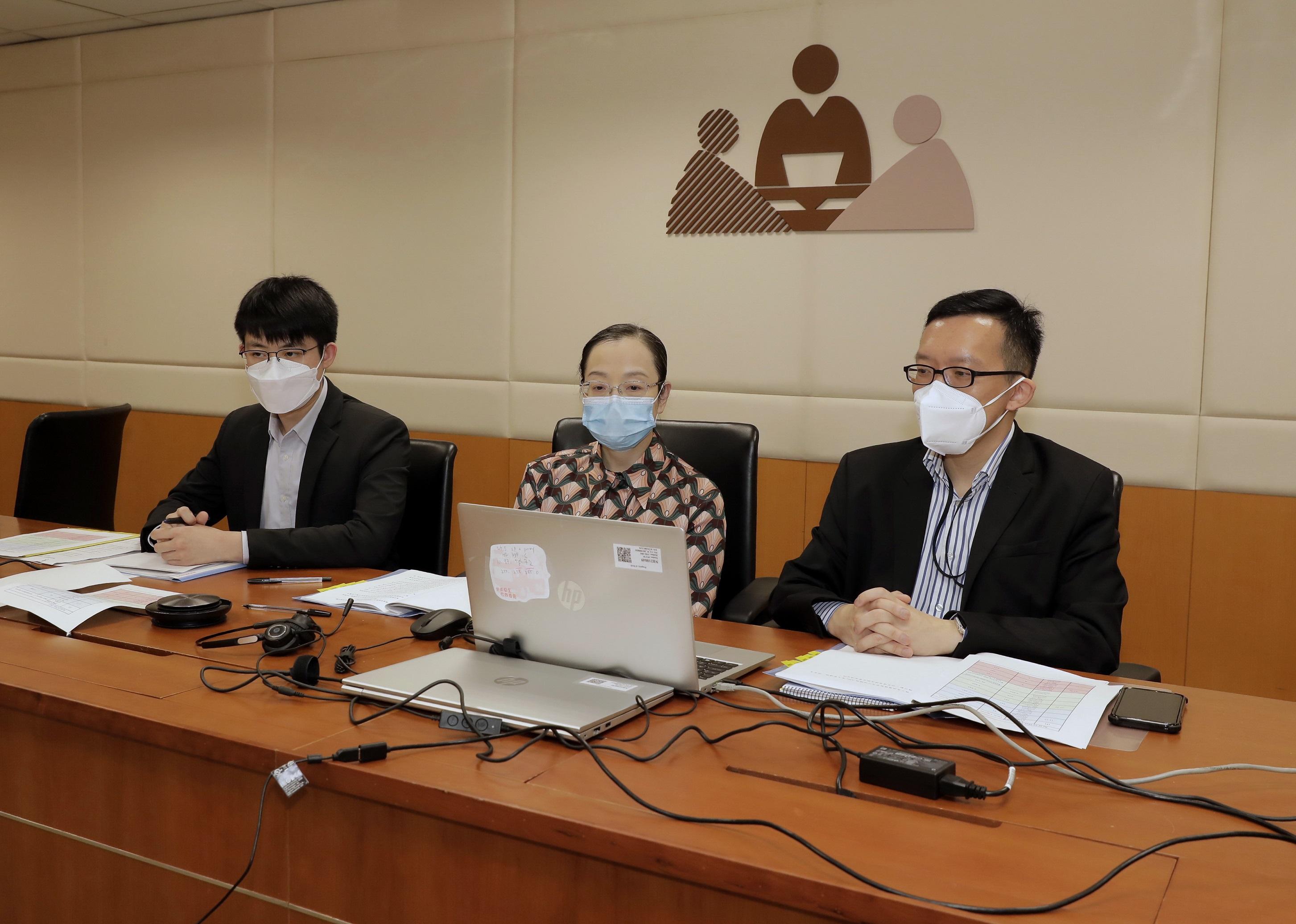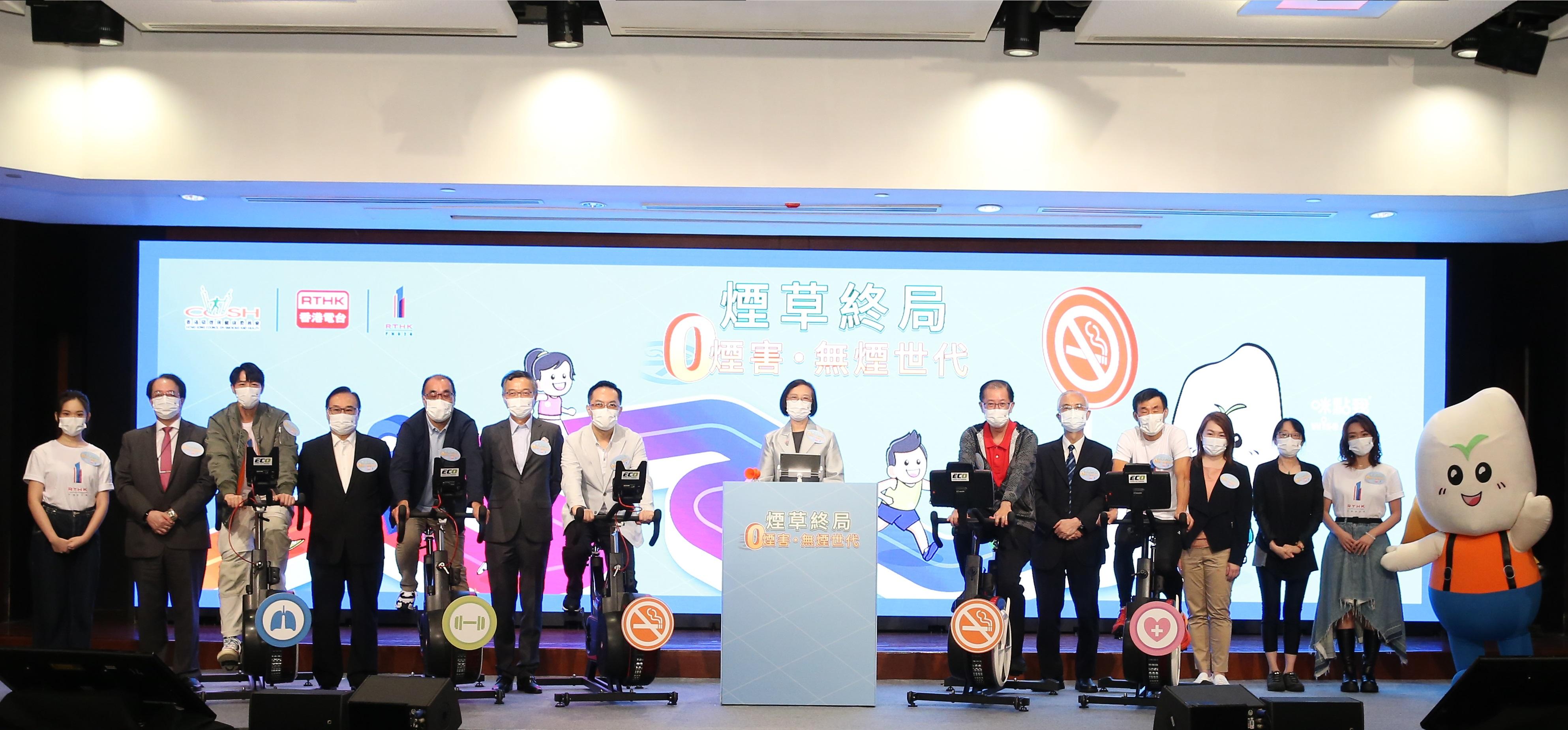The Home Affairs Department (HAD) jointly organised again a briefing session via video conferencing with the Property Management Services Authority (PMSA) for over 300 participants, including representatives of the offices of Legislative Council members, the property management (PM) sector, owners’ corporations/organisations (OCs/OOs), and owners/tenants of premises within eligible building blocks on May 24. The HAD briefed them about the enhancement measures and the “Verification Form” of the Anti-epidemic Support Scheme for Environmental Hygiene and Security Staff in the Property Management Sector (ASPM) under the Anti-epidemic Fund (AEF), as well as appealed to the PM companies, Deed of Mutual Covenant Managers and OCs/OOs (hereinafter referred to as “eligible applicant organisations”) again to actively support the ASPM and submit applications as soon as possible.
On February 28, the HAD launched the ASPM under the sixth round of the AEF, with the aim to provide each frontline PM worker performing duties relating to environmental hygiene or security in private residential, composite (i.e. commercial cum residential), industrial and commercial (including shopping malls) building blocks (hereinafter referred to as “eligible building blocks”) a monthly allowance of $2,000 for five months (February to June 2022). The HAD announced the enhancement measures of the ASPM on April 29, including: increasing the total quota of each eligible building block to not exceeding 200 (of which, 100 newly added quotas are for frontline cleansing and security staff engaged by premises within each eligible building block, as well as part-time/leave relief frontline cleansing/security workers of service contractors/subcontractors); as well as providing a maximum of $500 administrative fee to eligible applicant organisations for each frontline PM worker for whom they have successfully applied. The application period was also extended to May 31.
The HAD expressed that a series of publicity work and appeals had been made since the launch of the enhancement measures, such that the PM sector could get to know those measures the soonest and submit applications. These included the issuance of a press release and social media post immediately on the date of announcement (April 29), and letters to various trade associations in the PM sector to make a strong appeal to the PM companies to submit applications for eligible frontline PM workers. The PMSA also notified eligible applicant organisations on the same day via email, as well as putting up advertisements on radio and newspapers, issuing press releases/blogs/social media posts etc. from time to time, in order to promote the enhancement measures under the ASPM. The HAD also jointly organised a briefing session via video conferencing with the PMSA on May 6 to explain the enhancement measures of the ASPM. To facilitate eligible applicant organisations in applying for the allowance under the ASPM for the frontline PM workers engaged by premises located therein, the HAD and the PMSA uploaded a “Verification Form” onto the PMSA’s website on May 11. The PMSA also sent the “Verification Form” to eligible applicant organisations via email on May 18.
The HAD thanks the PM sector for actively responding and supporting the enhancement measures under the ASPM. As at May 24, the PMSA has received nearly 17 000 applications, which will benefit over 180 000 frontline PM workers, and over 2 500 applications have been approved, involving over $530 million, benefiting over 5 900 buildings.
With one week before the end of application period of the ASPM, the HAD and the PMSA jointly organised an online briefing session again on May 24 to remind the trade the details of the aforementioned enhancement measures, application method, coverage of the “Verification Form”, and relevant services provided by the PMSA, including handling requests for assistance and related referral cases. For instance, if an individual eligible applicant organisation refuses to apply for frontline PM workers engaged by premises, the PMSA will proactively intervene to mediate. The PMSA also shared successful intervention cases, which benefited more PM workers.
The HAD and the PMSA thanked over 300 PM sector representatives for joining the briefing session, and appealed strongly again to eligible applicant organisations to make good use of the last week before application closes, uphold corporate social responsibility and civic responsibility, following an inclusive and fair principle, and submit applications for all frontline PM workers serving eligible building blocks (including premises therein) to the PMSA promptly, so as to give recognition to their committed efforts during the pandemic.
For details on the ASPM, please contact the PMSA at 3696 1156 or 3696 1166, or visit the ASPM thematic website (aspm.pmsa.org.hk).




